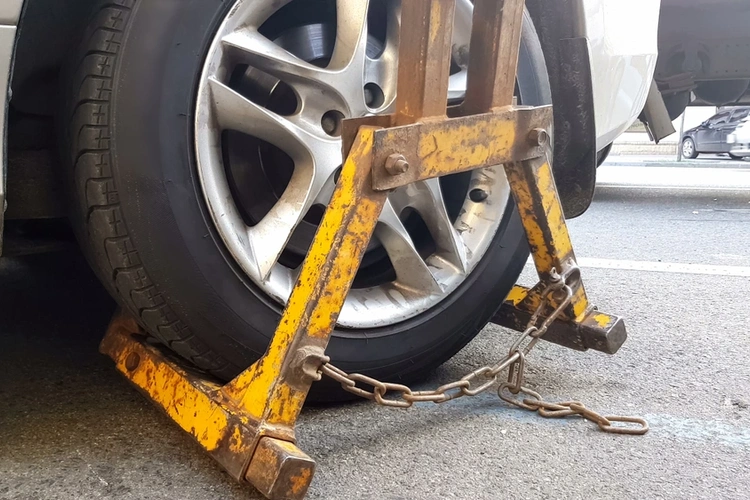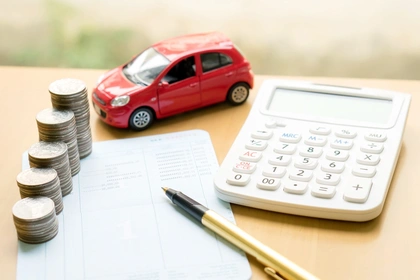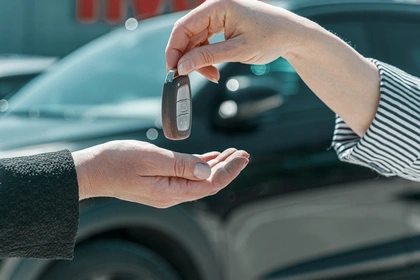You should be aware of the difference between bailiffs and debt collectors. Bailiffs are officially known as enforcement agents. As their name suggests, they are employed (privately or by the council) to enforce the repayment or collection of debts. Bailiffs may be permitted to enter your home under certain conditions. It is only in extreme cases involving unpaid income tax, stamp duty or criminal fines that they can force entry to your home.
Debt collectors don’t have the same powers. If a debt collector visits your home, they can’t enter using force and must leave if asked. They can’t take anything from your property, they can only ask you to arrange payment of the debt.
When can bailiffs take my car?
If you’re struggling to keep up with your debts, your case might be referred to bailiffs. The debt you’re having difficulty with might not be your car finance – you may have fallen behind with your mortgage or loan repayments, for example. In this case, bailiffs may attempt to take your car and sell it to repay the outstanding debt.
Unfortunately, cars are often the first thing that bailiffs look to remove, as they can be taken when you’re not at home and may generate relatively large amounts of cash quickly at auction. Depending on the situation, bailiffs might clamp your car or remove it completely.
When can’t bailiffs take my car?
There are circumstances in which bailiffs aren’t allowed to take your car when looking to recover an unpaid debt.
If your primary vehicle is a campervan that serves as your home, it must not be removed.
Your car should also not be confiscated if it is displaying a valid Blue Badge or is a Motability vehicle. Finally, you must be permitted to keep your car if it’s essential for you to be able to do your job and is worth less than £1,350.
Can bailiffs take a car on finance?
When you buy a car on hire purchase (HP) or personal contract purchase (PCP) finance, the loan will be secured against your vehicle. This means that you won’t be its legal owner until you’ve completed all your repayments (and paid the one-off balloon payment in a PCP agreement). The same is true if you’ve purchased your car via a conditional sale – you’ll be its registered keeper, but the lender will remain the car’s owner throughout the loan term.
As a car with outstanding finance isn’t legally yours, bailiffs shouldn’t remove it. They are permitted to only take items that belong to the person named on the debt, and as the vehicle still belongs to the lender, it won’t qualify. However, the law isn’t completely clear, and some bailiffs view this as a grey area. This means that you might find that bailiffs will still attempt to remove a car on finance, even though they shouldn’t.
Can bailiffs take a car bought with a personal loan?
Personal loans work differently from other types of car finance. As soon as you use the funds to pay the car’s seller, you’ll become its legal owner. In this case, the car will be in your name, can be listed as one of your assets, and may be at risk of being removed by bailiffs if you fall into financial difficulties and stop paying your bills or debts.
How can I prove to bailiffs that the car has outstanding finance?
If bailiffs arrive at your property and attempt to take your car from your drive, it’s your responsibility to prove that there is still outstanding finance on the vehicle. You should receive an initial notice from the bailiff advising you that they will be visiting to recover the debt. So, you might wish to use this time to prepare the proof you need.
To demonstrate to bailiffs that the car has been purchased with an active HP or PCP car loan, you could provide a copy of your finance agreement. If you don’t have this handy, you might be able to produce a recent bank statement that shows payments have been made. You could also use an HPI check to prove that there is outstanding finance – you’ll just need your car registration number.
Can bailiffs take my car if I’ve fallen behind on my finance payments?
Life can be unpredictable, and things can happen that make it difficult for you to keep up with your car finance repayments, despite your best intentions. If you fail to make more than one or two repayments, the lender may register a default on your credit report. If you still don’t make payments after this, they could take further action. Details of the action your lender might take should be listed on your finance agreement, but steps could include the lender employing a bailiff to take your car.
If you’re starting to struggle with your loan repayments, you should contact your lender straight away. It’s possible that they could offer you a new repayment plan that better suits your current circumstances. You could also apply for a refinance deal that could lengthen your loan term and reduce your monthly payments. Bear in mind that a reduced payment plan can affect your credit score.
Voluntary termination may be another option. Under Section 99 of the Consumer Credit Act 1974, you have the right to terminate your car finance agreement and hand the car back to the lender. To be eligible, you must have paid 50% of the total amount repayable, including any interest and charges.
Can I stop bailiffs taking my car?
Understanding your rights when it comes to bailiffs could make it a little easier to navigate this stressful situation. Bailiffs can clamp or remove your car only if they find it parked at your home, place of work, or in a public place like a road or car park. If you know that you might be getting a visit from the bailiffs, you might choose to move your car somewhere safe while you deal with your debts. Parking it in a locked garage or asking a friend or family member if you could keep it on their driveway for a while could give you the time you need to address the debt and find a solution without losing your car.
What should I do if bailiffs clamp my car?
If you come home to find that your car has been clamped rather than removed, you might want to act quickly. Depending on the bailiffs’ orders, they might be able to come back and take your vehicle just two hours later if you haven’t already taken steps to start paying back the debt.
Bailiffs will typically leave a ‘warning of immobilisation’ letter on your car. This should state when the clamp was fitted with a phone number that you can call to make a payment. Depending on your situation, you might be able to pay what you owe, agree to start making regular payments as part of a controlled goods agreement, or provide proof that the car has outstanding finance. Bailiff fees may apply.
The clamp won’t usually be removed unless you successfully challenge the bailiff’s right to clamp or make a payment. It’s illegal to remove the clamp yourself or try to move your car.
What should I do if bailiffs remove my car?
When a car has been removed by bailiffs, they may try to sell it and put the proceeds towards clearing your debt. In this case, they will likely issue you with a receipt. This must list your car’s make, model, and colour. It should also be signed. You can raise a complaint if this process isn’t followed correctly or if the bailiffs take a financed car that still belongs to your lender (and is therefore not yours to take). Bear in mind that you will owe any remaining balance after the sale proceeds have been put towards your debt.
Can bailiffs take my partner’s car on finance?
Bailiffs are permitted only to seize goods that belong to the person named on the debt. While it doesn’t matter whether your partner lives in the same house as you, it is still your responsibility to prove that you are not the legal owner of your partner’s car. Bank statements, an HPI check, or a copy of your partner’s car finance agreement could help to make sure that bailiffs don’t remove someone else’s car by mistake. The same applies to vehicles belonging to your children or other family members. However, please be aware that bailiffs can take property which you jointly own with others.
Get Car Finance up to £100,000
- No deposit needed
- Check your eligibility without impacting your credit score
- Rates from 8.9%* APR
'Representative Example: Borrow £12,000 over 5 years with a £0 deposit. Representative 20.5% APR fixed rate. Monthly payment: £309.93. Option to purchase fee £10 payable. Total cost of credit: £6,605.80. Total amount repayable: £18,605.80.
We are a credit broker, not a lender. We partner with CarFinance 247 Limited, a credit broker (not a lender) who works with a wide panel of lenders.
Disclaimer: We make every effort to ensure content is correct when published. Information on this website doesn't constitute financial advice, and we aren't responsible for the content of any external sites.






